Full text
PDF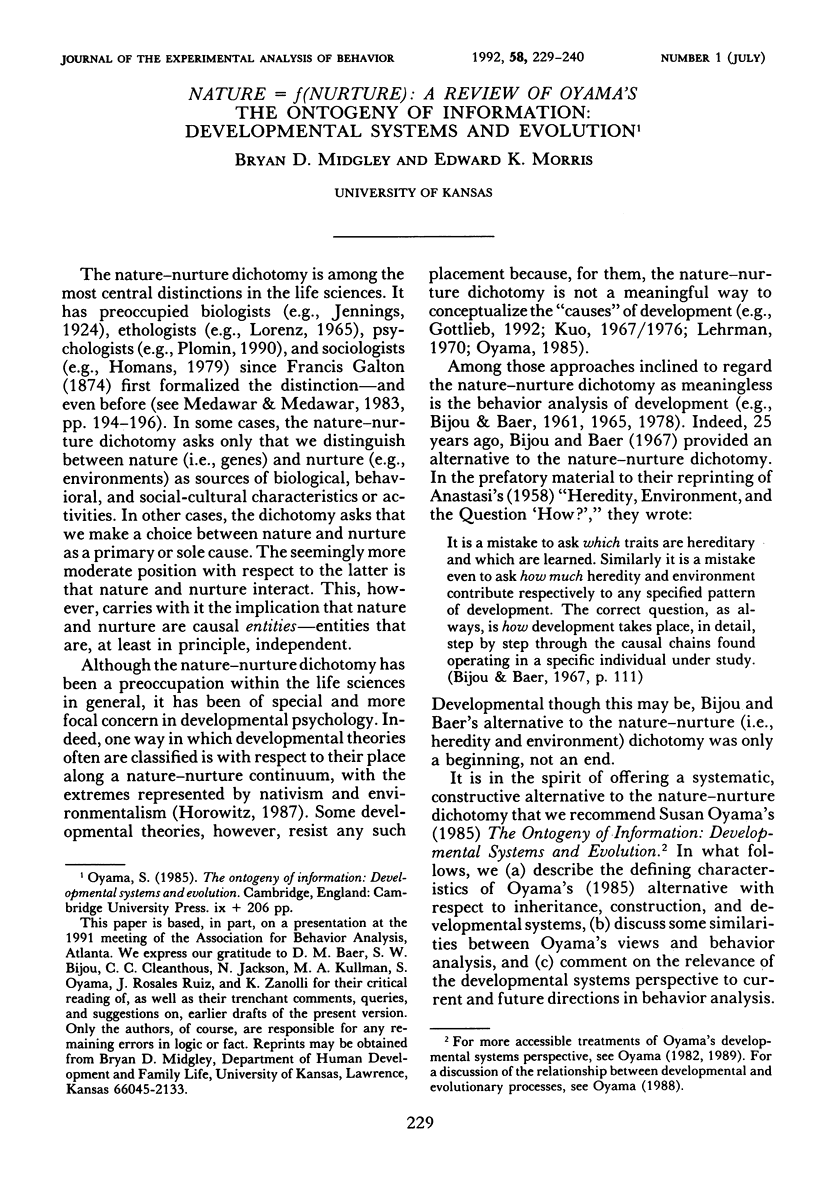
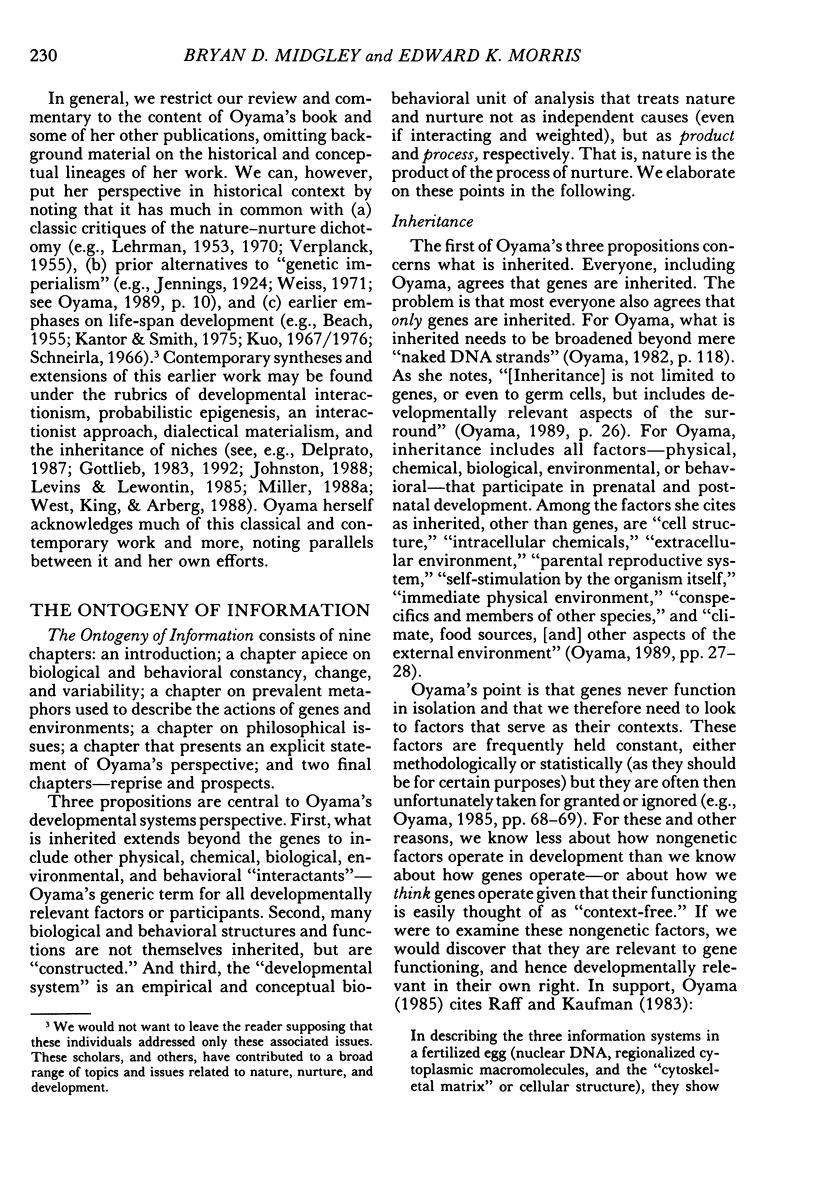
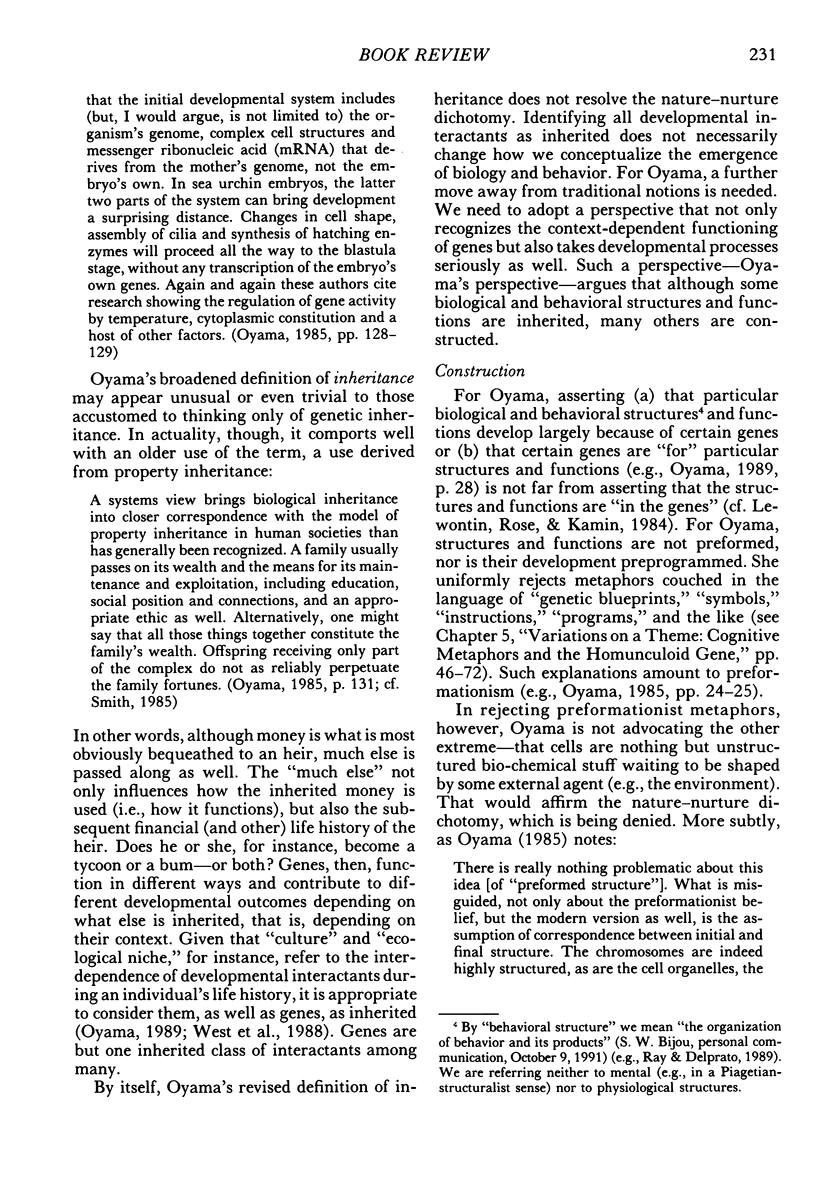
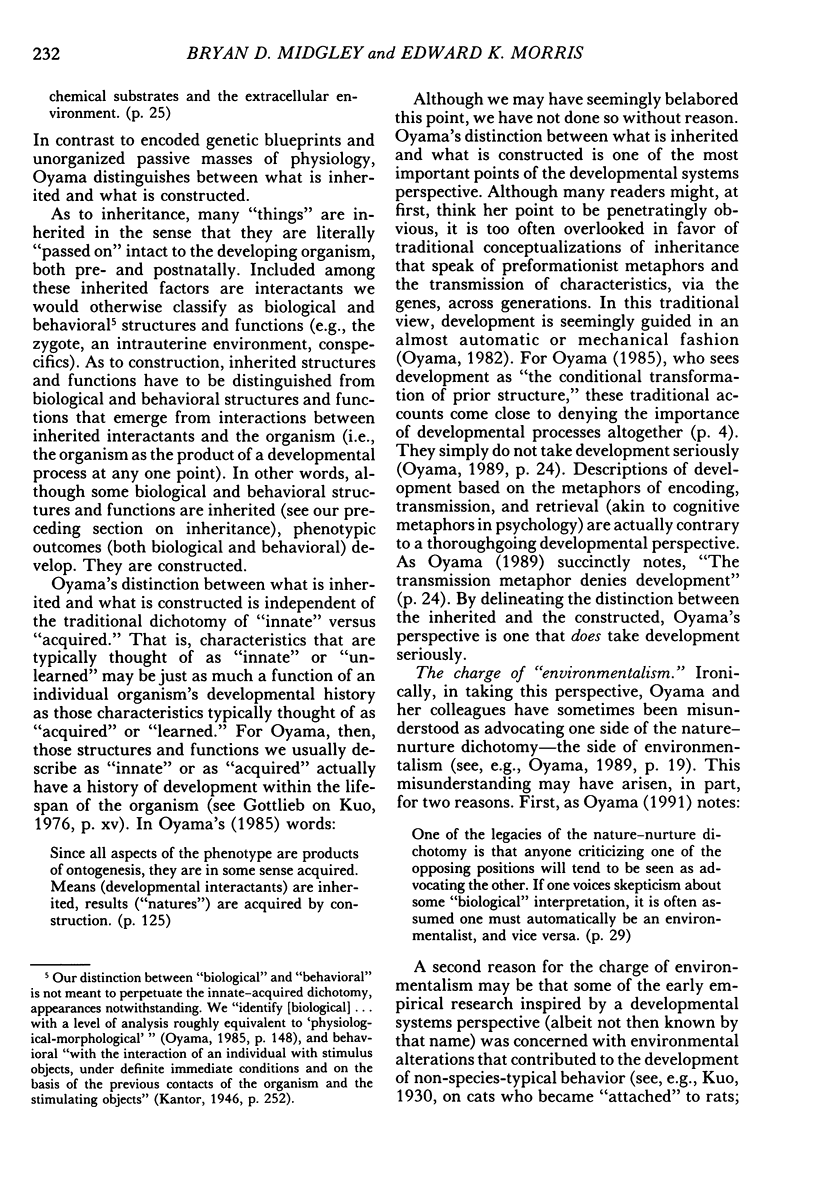
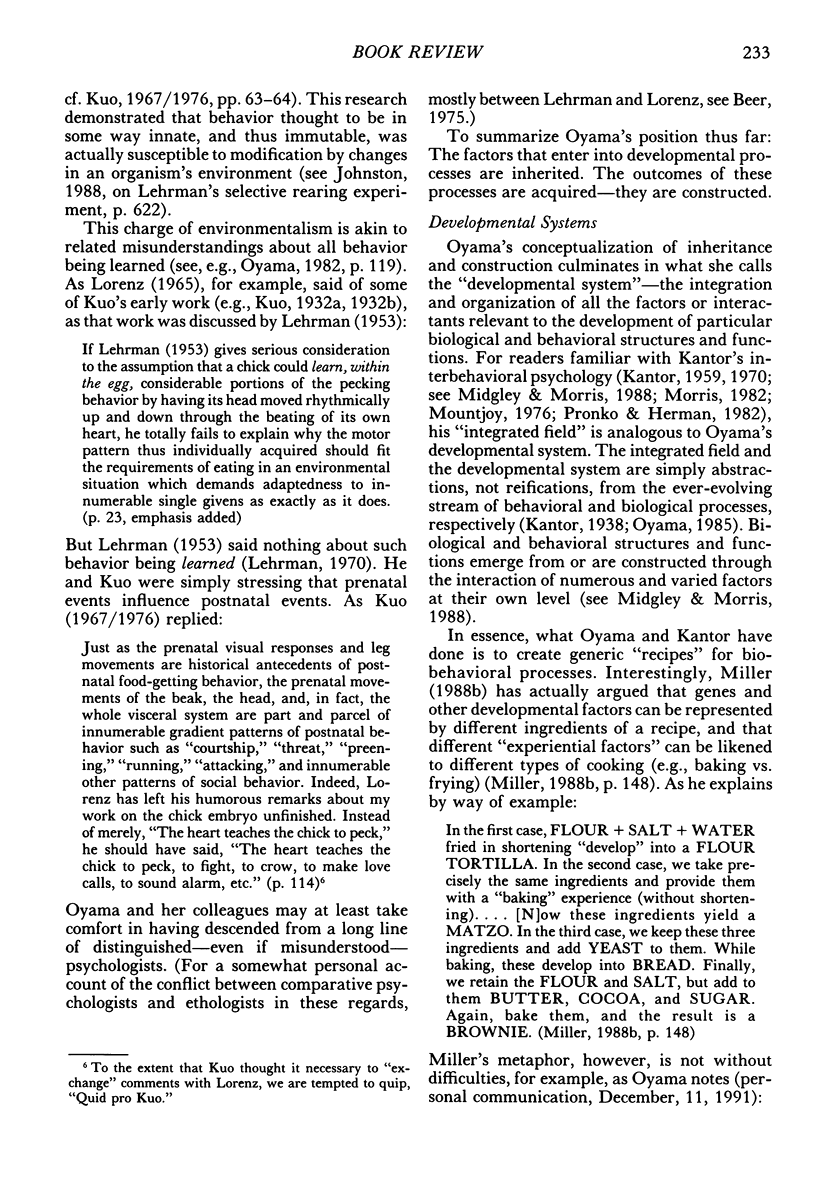
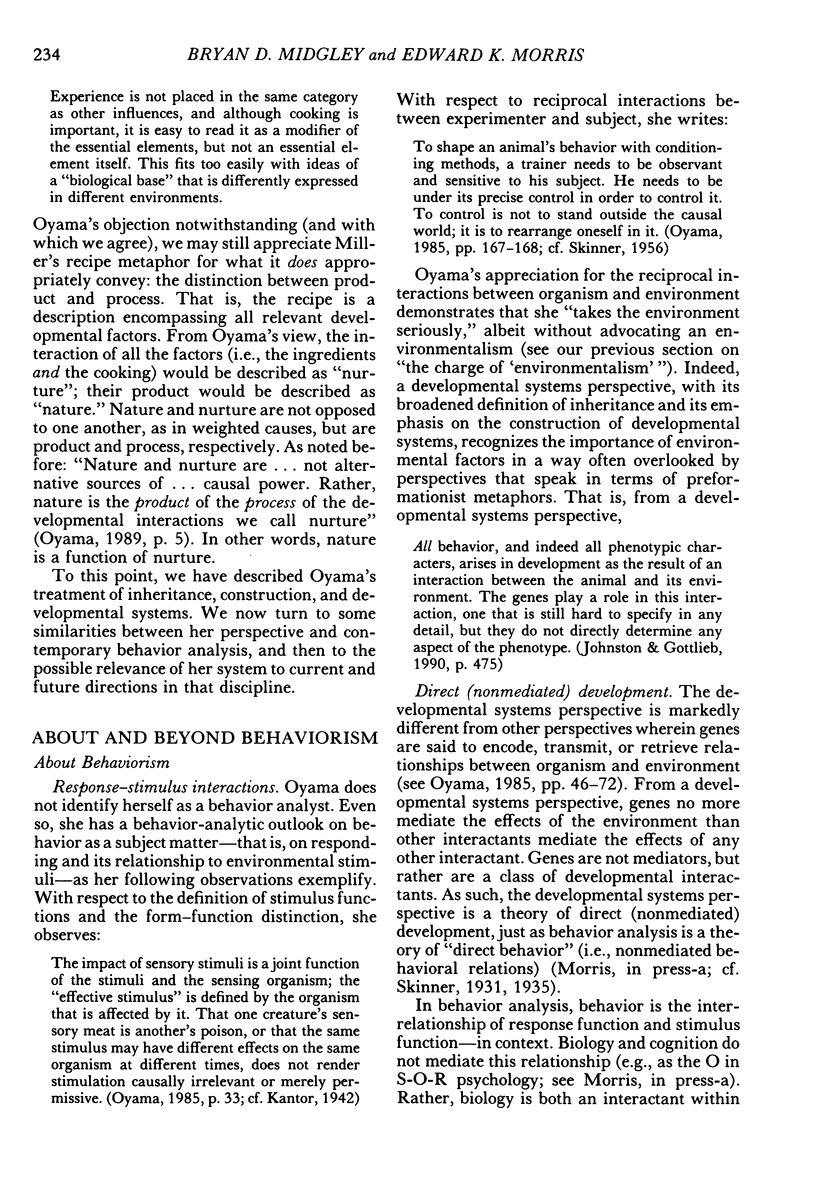
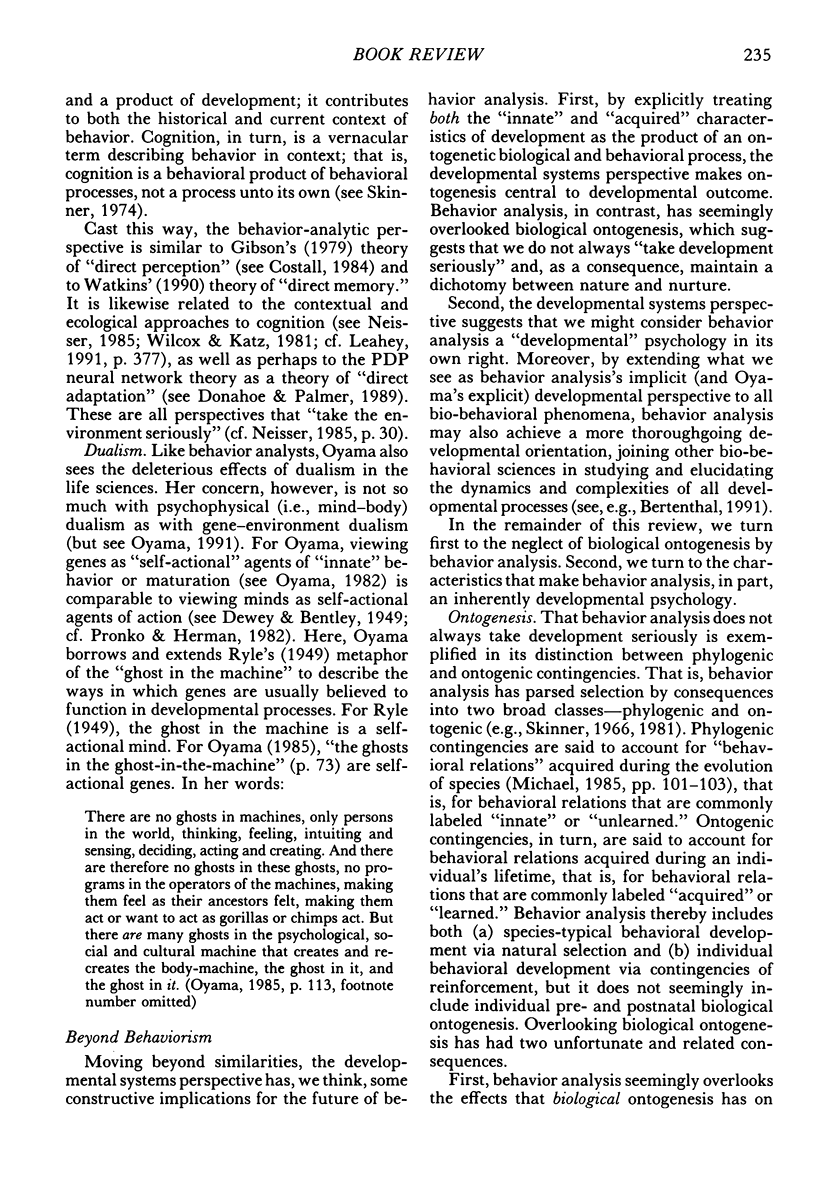
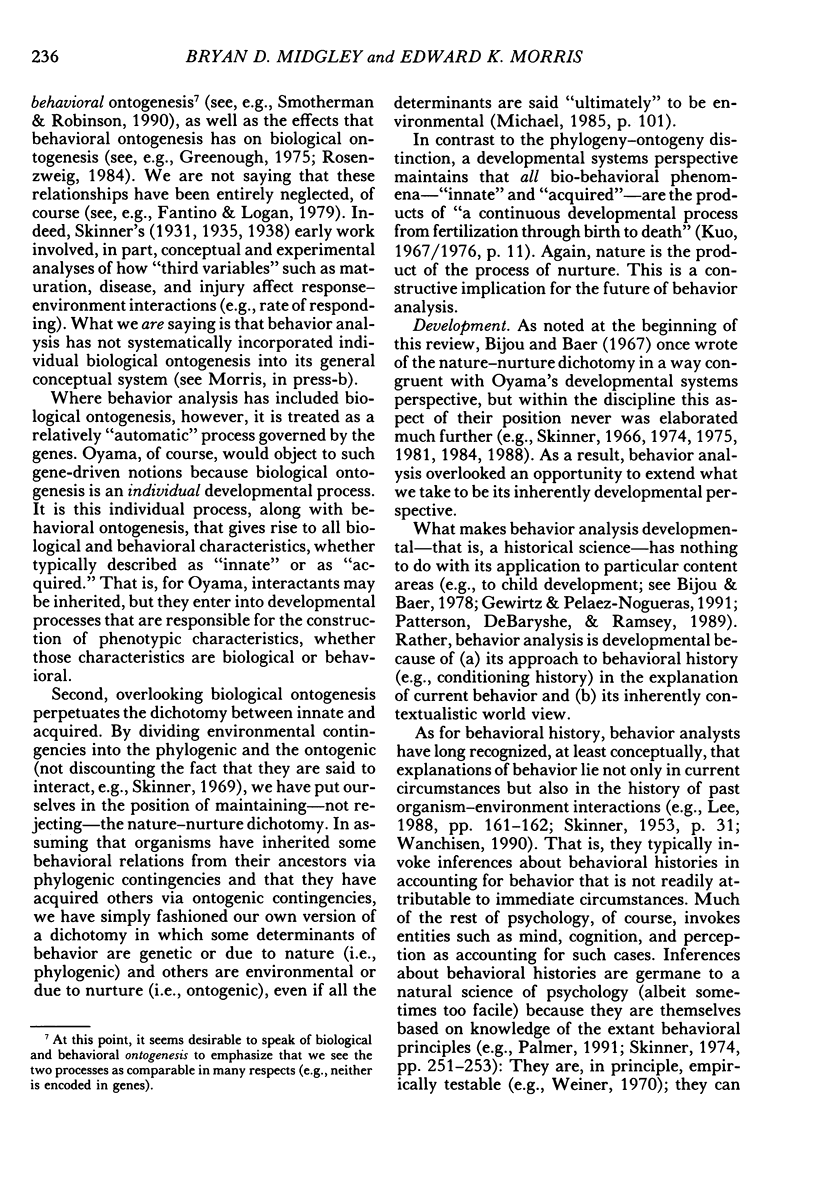
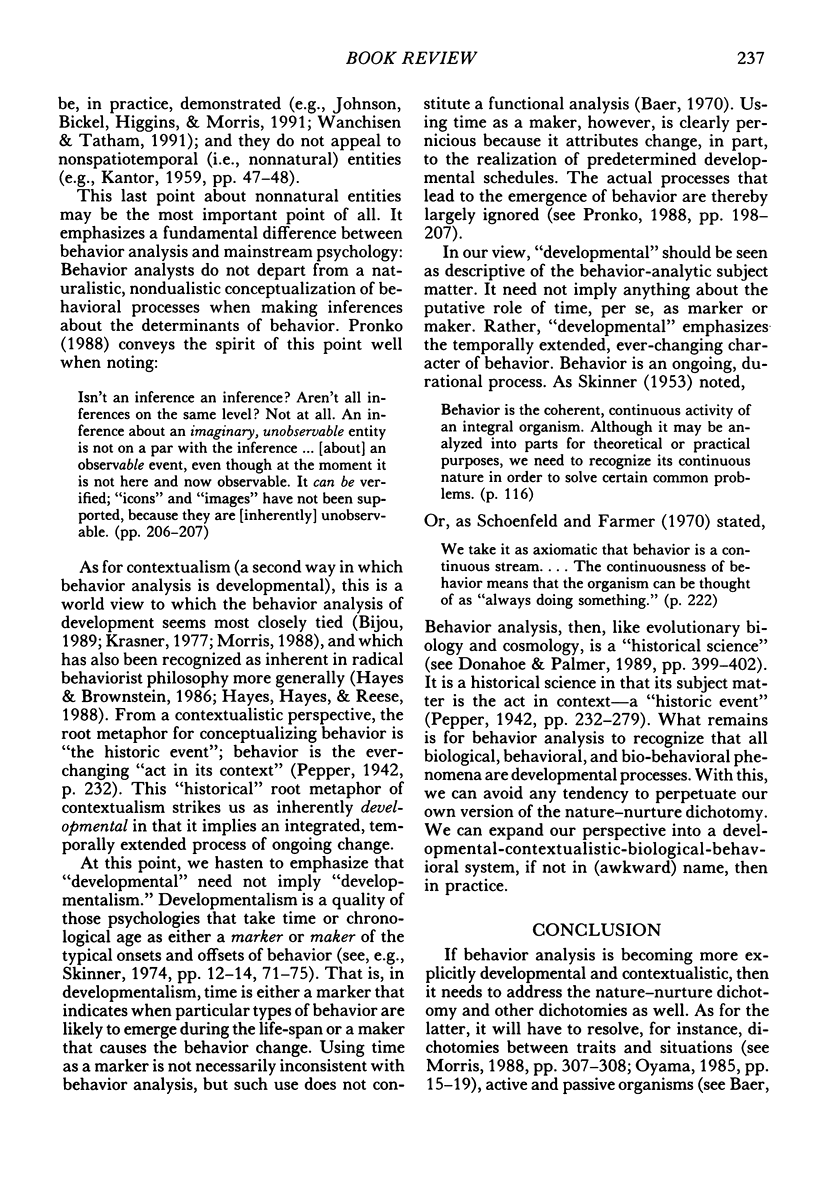
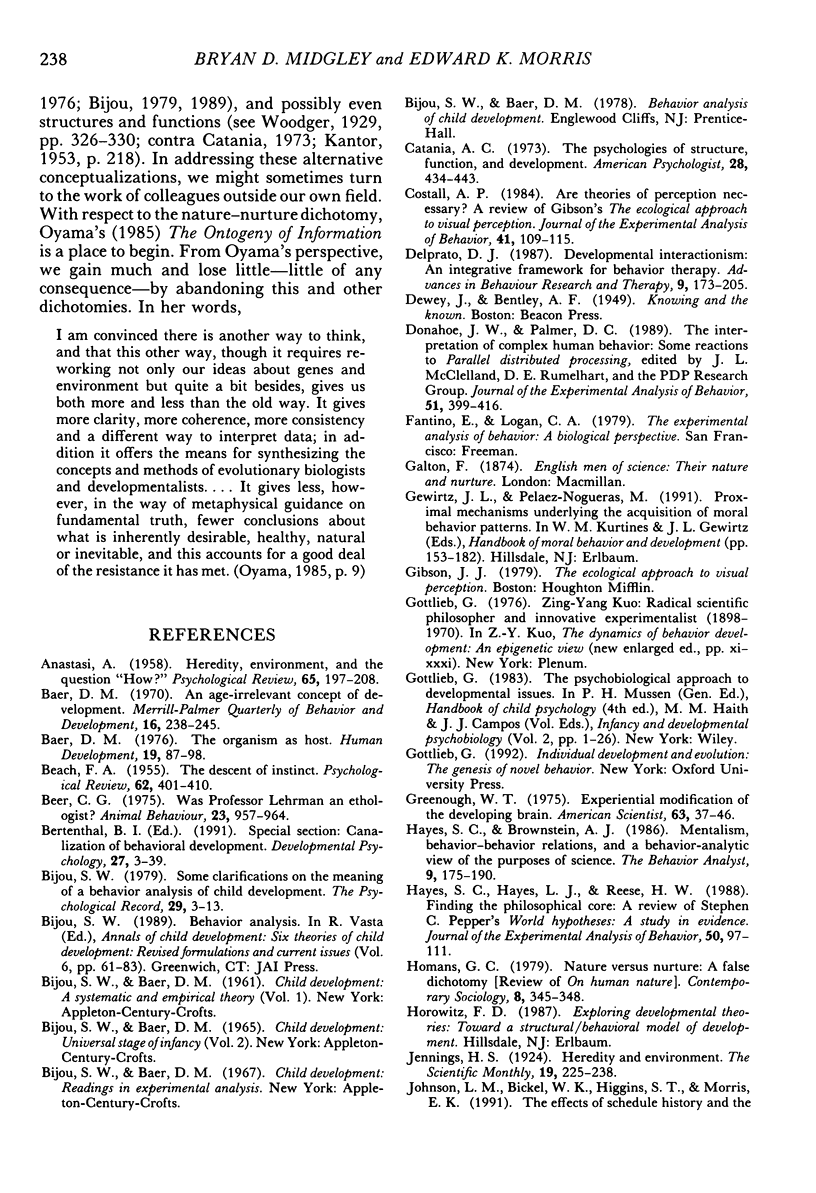
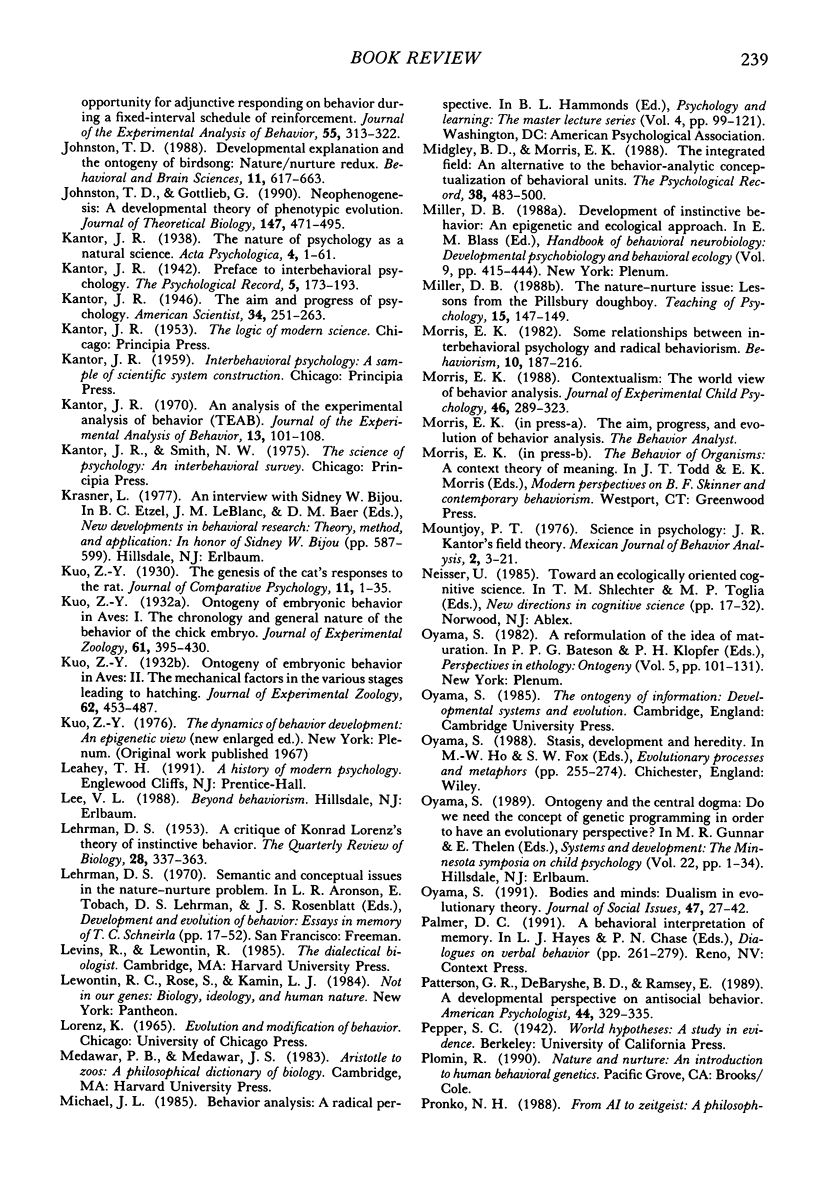
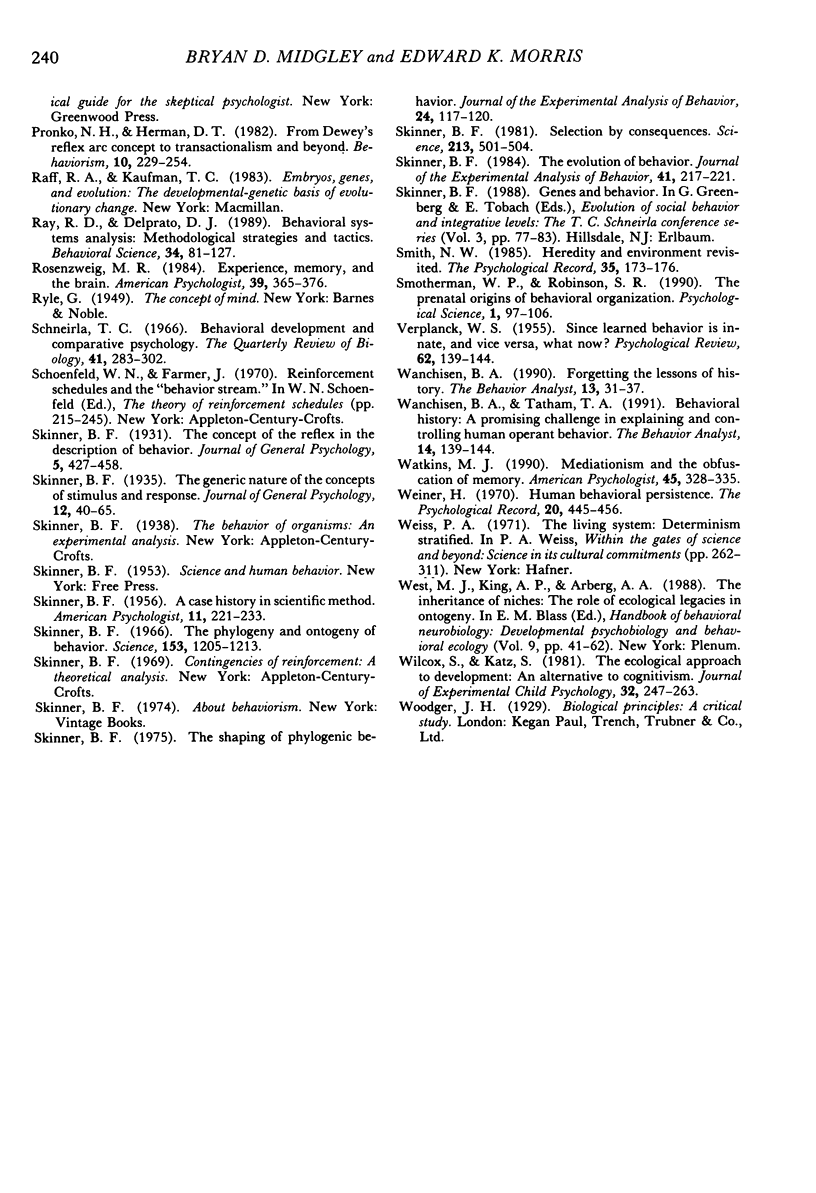
Selected References
These references are in PubMed. This may not be the complete list of references from this article.
- ANASTASI A. Heredity, environment, and the question how? Psychol Rev. 1958 Jul;65(4):197–208. doi: 10.1037/h0044895. [DOI] [PubMed] [Google Scholar]
- BEACH F. A. The descent of instinct. Psychol Rev. 1955 Nov;62(6):401–410. doi: 10.1037/h0049138. [DOI] [PubMed] [Google Scholar]
- Costall A. P. Are theories of perception necessary? A review of Gibson's The Ecological Approach to Visual Perception. J Exp Anal Behav. 1984 Jan;41(1):109–115. doi: 10.1901/jeab.1984.41-109. [DOI] [PMC free article] [PubMed] [Google Scholar]
- Greenough W. T. Experiential modification of the developing brain. Am Sci. 1975 Jan-Feb;63(1):37–46. [PubMed] [Google Scholar]
- Hayes S. C., Hayes L. J., Reese H. W. Finding the philosophical core: A review of Stephen C. Pepper's World Hypotheses: A Study in Evidence. J Exp Anal Behav. 1988 Jul;50(1):97–111. doi: 10.1901/jeab.1988.50-97. [DOI] [PMC free article] [PubMed] [Google Scholar]
- Johnson L. M., Bickel W. K., Higgins S. T., Morris E. K. The effects of schedule history and the opportunity for adjunctive responding on behavior during a fixed-interval schedule of reinforcement. J Exp Anal Behav. 1991 May;55(3):313–322. doi: 10.1901/jeab.1991.55-313. [DOI] [PMC free article] [PubMed] [Google Scholar]
- Johnston T. D., Gottlieb G. Neophenogenesis: a developmental theory of phenotypic evolution. J Theor Biol. 1990 Dec 21;147(4):471–495. doi: 10.1016/s0022-5193(05)80260-7. [DOI] [PubMed] [Google Scholar]
- Kantor J. R. An analysis of the experimental analysis of behavior (TEAB). J Exp Anal Behav. 1970 Jan;13(1):101–108. doi: 10.1901/jeab.1970.13-101. [DOI] [PMC free article] [PubMed] [Google Scholar]
- LEHRMAN D. S. A critique of Konrad Lorenz's theory of instinctive behavior. Q Rev Biol. 1953 Dec;28(4):337–363. doi: 10.1086/399858. [DOI] [PubMed] [Google Scholar]
- doi: 10.1901/jeab.1989.51-399. [DOI] [PMC free article] [Google Scholar]
- Patterson G. R., DeBaryshe B. D., Ramsey E. A developmental perspective on antisocial behavior. Am Psychol. 1989 Feb;44(2):329–335. doi: 10.1037//0003-066x.44.2.329. [DOI] [PubMed] [Google Scholar]
- Rosenzweig M. R. Experience, memory, and the brain. Am Psychol. 1984 Apr;39(4):365–376. doi: 10.1037//0003-066x.39.4.365. [DOI] [PubMed] [Google Scholar]
- Schneirla T. C. Behavioral development and comparative psychology. Q Rev Biol. 1966 Sep;41(3):283–302. doi: 10.1086/405056. [DOI] [PubMed] [Google Scholar]
- Skinner B. F. Selection by consequences. Science. 1981 Jul 31;213(4507):501–504. doi: 10.1126/science.7244649. [DOI] [PubMed] [Google Scholar]
- Skinner B. F. The evolution of behavior. J Exp Anal Behav. 1984 Mar;41(2):217–221. doi: 10.1901/jeab.1984.41-217. [DOI] [PMC free article] [PubMed] [Google Scholar]
- Skinner B. F. The phylogeny and ontogeny of behavior. Contingencies of reinforcement throw light on contingencies of survival in the evolution of behavior. Science. 1966 Sep 9;153(3741):1205–1213. doi: 10.1126/science.153.3741.1205. [DOI] [PubMed] [Google Scholar]
- Skinner B. F. The shaping of phylogenic behavior. J Exp Anal Behav. 1975 Jul;24(1):117–120. doi: 10.1901/jeab.1975.24-117. [DOI] [PMC free article] [PubMed] [Google Scholar]
- VERPLANCK W. S. Since learned behavior is innate, and vise versa, what now? Psychol Rev. 1955 Mar;62(2):139–144. doi: 10.1037/h0044788. [DOI] [PubMed] [Google Scholar]
- Watkins M. J. Mediationism and the obfuscation of memory. Am Psychol. 1990 Mar;45(3):328–335. doi: 10.1037//0003-066x.45.3.328. [DOI] [PubMed] [Google Scholar]


